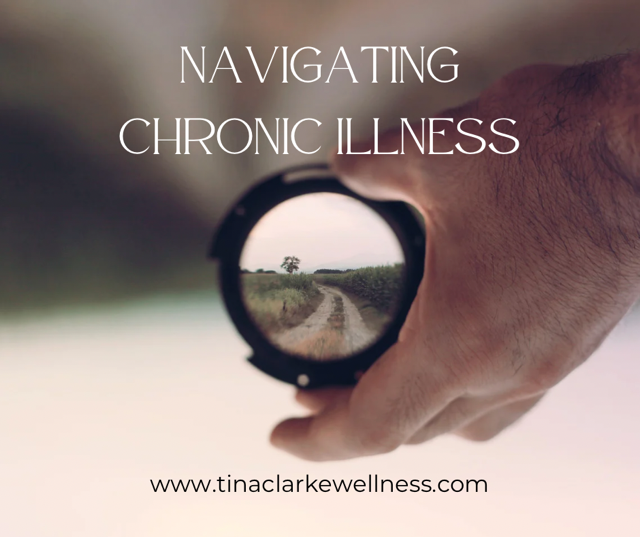
01 Sep Navigating Chronic Illness
No one really teaches us how to live with chronic illness. There’s no guidebook, no class, no set of instructions. Most of us are left to figure it out as we go, usually with only the medical system offering one narrow path forward. And while medical care has its place, for many of us, it simply isn’t enough.
What gets left out is the human side—the grief for the life you once had (or maybe never had), the endless rounds of tests and pharmacy visits, the financial pressure, the loneliness, the frustration of missing out, and the ongoing dance between hope and acceptance. Add pain, fatigue, or disability on top of that, and you’re living with uncertainty every single day.
Then come the questions no one seems to answer: What should I eat? Why do some foods make me feel worse? Is this flare-up caused by stress? Why does my doctor never talk about how my emotions or nervous system are part of my symptoms? How do I feel OK with this way of life? If the medications only partially help, what else can I do?
In the past few years, science has started to catch up with what many of us already sense. The gut, for example, isn’t just about digestion—it produces most of our serotonin, linking it directly to mood. Chronic stress and trauma don’t just affect our minds—they change our hormones, our immune systems, our digestion, even our pain levels. And yet, these connections rarely come up in a ten-minute doctor’s appointment.
Nutrition is another missing piece. Modern soils hold only a fraction of the minerals they once did. That means our food often doesn’t contain enough of the building blocks our bodies need to repair and regulate themselves. Magnesium supports everything from muscle function to DNA repair, but most of us are low in it. B vitamins help balance hormones; omega fatty acids support our brain and cellular health. Without these essentials, our bodies struggle to keep up—but who tells us this when we’re sitting in the consultation room?
And hardly anyone talks about the emotional landscape of chronic illness itself. The constant stress of symptoms, appointments, and uncertainty can feel like a trauma all on its own. Our nervous systems adapt, often leaving us on high alert or completely drained. The old idea of “psychosomatic” being “all in your head” was misleading—the truth is that mind and body are deeply connected, and acknowledging that can actually help us heal.
For me, this shift in perspective has been everything. Over the last twenty years, I’ve learned that “healing” isn’t about fixing—it’s about navigating. It’s about listening to what my bodymind is saying, meeting myself with compassion, and building a more honest relationship with all the parts of me: the ones carrying old wounds, the ones that know how to heal when supported, the ones that need to place boundaries, and even the ones that still struggle.
This doesn’t erase illness. But it does make space for empowerment, agency, and even joy—right here in the life you’re living.
And this is the heart of the work I do as a health coach. I help people explore these missing connections—between body, mind, food, stress, and emotions—so they can feel supported and more resilient on their journey. You don’t have to walk this road alone. Together, we can uncover what helps you feel more well, more empowered, and more at home in your body.
✨ If this resonates with you and you’d like support in navigating your own journey with chronic illness, I’d love to connect. Reach out to learn more about my health coaching, and let’s explore what might help you feel a little lighter, capable and more ease in your daily life.




Sorry, the comment form is closed at this time.